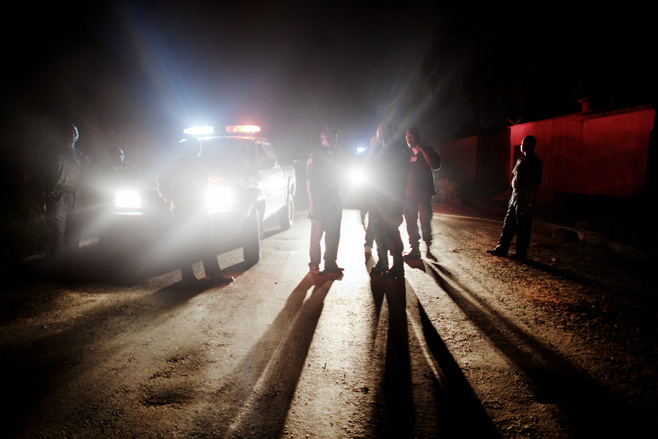By: Danielle L. Gwozdz
Impunity Watch News Reporter, Africa
MONROVIA, Liberia – Police corruption in Liberia denies Liberians equal and impartial justice and impedes upon the country’s post-civil war decade long development, Human Rights Watch said in a report. The United Nations (“UN”) plans on down-scaling its presence in Liberia, but should do so after these abuses are stopped.

In a 64 page report about this abuse it describes the police’s many criminal activities, such as charging crime victims at every stage of an investigation, extorting goods from street vendors, and bribing criminal suspects to pay for their release. These actions violate Liberians’ rights under international and national law, as well as remove any trust the public has in officers.
“Police should protect the population, not prey on vulnerable people,” said Corinne Dufka, senior West Africa researcher at Human Rights Watch. “Liberians have had all too many years of chaos and violence. A professional police force is critical to uphold people’s rights and create a rights-respecting society.”
In February the UN recommended more resources going to law enforcement to ensure Liberia’s security sector gains the trust of its citizens and can operate independently once the UN withdraws.
“Improving the criminal justice system, addressing impunity for crimes and increasing access to justice and security services for all Liberians remain particularly important for the consolidation of peace,” the UN Mission in Liberia said in its report to the Security Council.
The UN has been in Liberia for 10 years to stabilize the country after years of civil war. It now plans to cut its troops in Liberia in half between 2013 and 2015. However, a recent UN assessment of the national police found “abusive behavior, a lack of professionalism, and serious resource challenges that leave the force unprepared to become Liberia’s security.
“Liberians have had all too many years of chaos and violence. A professional police force is critical to uphold people’s rights and create a rights-respecting society,” said Corinne Dufka.
Human Rights Watch spoke with 120 people who were victims to the police abuse and corruption. They told Human Rights Watch that the police officers typically ask crime victims to pay to register their cases, for transport to the crime scenes, and for pens and other items used in the investigation.
“I don’t go to the police for anything,” one Monrovia resident told Human Rights Watch. “They always want from me and I don’t have.”
Human Rights Watch also spoke to 35 police officers who expressed their own frustration with a lack of adequate support for their work. These officers described their inadequate supplies, low salaries, and pressure to pay their superiors to obtain desirable posts and promotions.
“They come crying to you and you don’t even have a drop of gas,” one officer said, describing the difficulty of traveling to a crime scene to investigate a crime report. “We are not supposed to ask someone for money, but because you don’t have, we ask the person for money to go.”
“The Liberian government has made noteworthy efforts in recent years to promote human rights,” Dufka said. “Persistent police corruption and abuse, however, undermine the nation’s goals of national security and economic development.”
For more information, please visit:
Human Rights Watch – Liberia: Police Corruption Harms Rights, Progress – 22 August 2013
Reuters – Rampant police corruption harms Liberia’s progress: report – 22 August 2013
Thomas Reuters Foundation – Liberia: Police Corruption Harms Rights, Progress – 22 August 2013
AfriqueJet – Liberia: Police corruption harms human rights, progress – 23 August 2013
News24 – Police corruption harms Liberia’s progress – 22 August 2013
Tolerance.ca – Liberia: Police Corruption Harms Rights, Progress – 22 August 2013